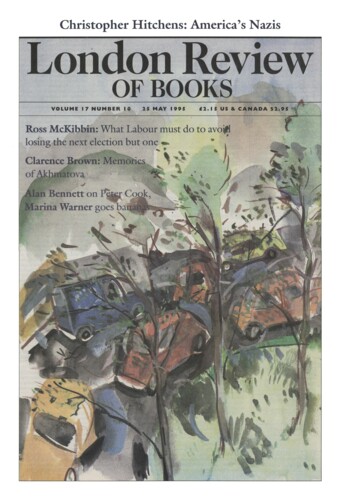Anti-Slavery Begins at Home
Elizabeth Fox-Genovese, 25 May 1995
Reflecting on the cultural consequences of the Civil War, the Southern literary critic, Lewis Simpson, wonders how Emerson, the quintessential New England intellectual, could have failed to understand that ‘in their progress as the representation of the idea of emancipation, Americans had become engaged in a bloody emancipation of a second American republic – a modern nation-state – from the political order that, with nostalgic affection, would come to be thought of as the “Old Republic”.’ Emerson had been a late convert to abolitionism and the passions that drove a determined group of his fellow New Englanders to prod the conscience of the Old Republic to live up to the professed goals of its founding document, the Declaration of Independence. But then, Emerson never did feel great kinship with vanguard abolitionists like William Lloyd Garrison, much less with aspiring literary women like Lydia Maria Child and Harriet Beecher Stowe, who brought the injustices of slavery home to ordinary American readers. When, in 1850, Emerson came to support anti-slavery, he did so more from reasons of abstract ethics than from humanitarian sentiment.’

